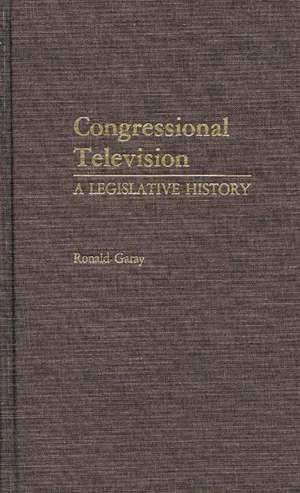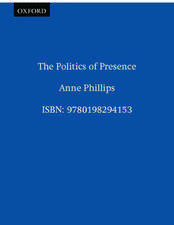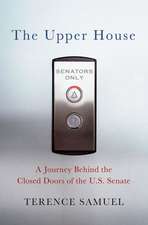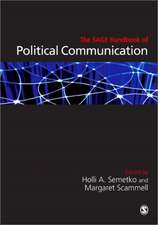Congressional Television: A Legislative History: Contributions in Sociology, cartea 111
Autor Ronald Garayen Limba Engleză Hardback – 31 mai 1984
Using a format closely resembling a legislative history, Ronald Garay traces the progress of congressional television from its inception in 1922, when the first resolution seeking approval to broadcast House floor proceedings was introduced, to 1979, when legislation allowing that coverage was finally passed. Garay presents the major arguments that have been voiced, both inside and outside Congress, in support of or in opposition to televising congressional proceedings. He places the controversial congressional hearings of the 1950s, the Senate Watergate hearings, House Judiciary Committee debates on presidential impeachment, and other major events in the context of the overall legislative history of congressional television. Garay probes the motivations that prompted Congress, congressmen, and senators to pursue such legislation and also provides insights into the impact television has had on member conduct, legislative proceedings in the House and Senate, and on the congressional television audience.
Preț: 345.07 lei
Preț vechi: 555.91 lei
-38% Nou
66.03€ • 69.11$ • 54.96£
Carte tipărită la comandă
Livrare economică 31 martie-14 aprilie
Specificații
ISBN-10: 0313237077
Pagini: 195
Dimensiuni: 140 x 216 x 16 mm
Greutate: 0.41 kg
Editura: Greenwood Press
Seria Contributions in Sociology














